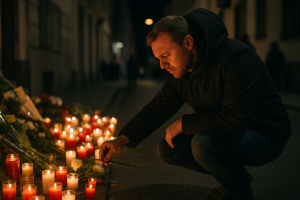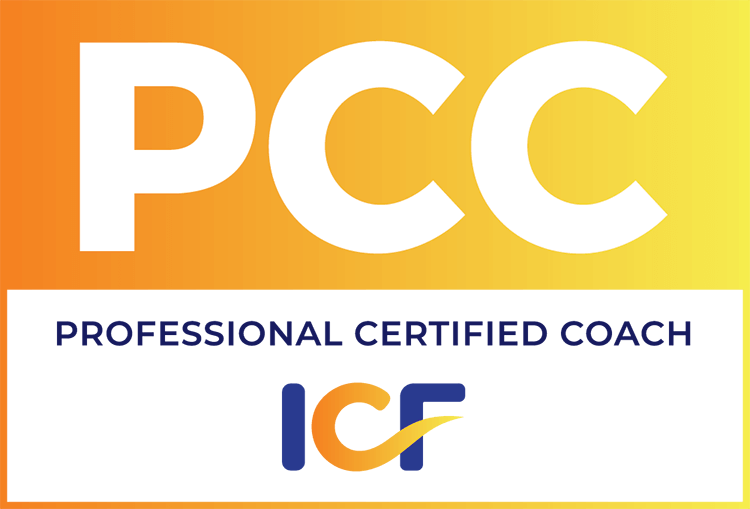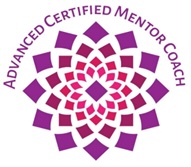Thomas J. Leonard, often referred to as the father of modern coaching, left us with a simple but profound directive: Respect the client’s humanity.
This isn’t a tip, technique, or a nice thing to do. It’s a way of being as a coach. Respecting humanity in coaching means honoring our clients as whole, resourceful, and creative people—not projects to be fixed or problems to be solved. It also means honoring our own humanity as coaches, with all our limits, emotions, and imperfections.
In recent weeks, life has reminded me over and over how precious and fragile humanity really is.
When Respect for Humanity Fails
 We’ve all seen what happens when humanity is disregarded. Violence makes headlines, whether it’s a horrific assassination of a young man on a public stage or a young woman losing her life to a heartless act of violence. We don’t need to debate motives or take political sides to feel the grief of a life cut short.
We’ve all seen what happens when humanity is disregarded. Violence makes headlines, whether it’s a horrific assassination of a young man on a public stage or a young woman losing her life to a heartless act of violence. We don’t need to debate motives or take political sides to feel the grief of a life cut short.
As a mother of a son and a daughter, I can’t help but see my own children in those faces. I think of how quickly a normal day can end in heartbreak, and how the world keeps spinning while families are left to wake up to a sunrise without someone they love. It’s heart-wrenching.
Even in the more ordinary corners of life, we’re touched by loss. My daughter recently said goodbye to her beloved Rottweiler, Mocha. For her, Mocha was more than a pet—she was family, a loyal companion who had nestled her way into all our hearts. Watching my daughter grieve makes this a double heartache for me.
What weaves these very different experiences together is this poignant truth: when humanity is ignored, violated, or simply taken for granted, it fractures something inside us. When it’s respected and honored, even in loss, we can find a healing and dignity that carries us forward and gives us hope.
Respecting the Client’s Humanity in Coaching
 So what does practicing human-centered coaching mean for us as professional coaches?
So what does practicing human-centered coaching mean for us as professional coaches?
First, it means we don’t reduce clients to goals, problems, or labels. We listen deeply—not just to the words, but to the person. We make space for difference, knowing their values may not mirror ours. We honor limits.
Clients are human; they will stumble, contradict themselves, and have blind spots. Respecting the client’s humanity means allowing them to be fully human, not demanding they become flawless.
Second, it means creating safety. When clients know their humanity is honored, they can risk honesty. They can look at uncomfortable truths. They can explore possibilities without fear of judgment.
Third, it means remembering that respect doesn’t equal agreement. I can respect someone’s human dignity while disagreeing strongly with their choices or beliefs. This paradox is at the heart of mature coaching: holding space for difference while championing the person.
Respecting the Coach’s Own Humanity
 This principle doesn’t stop with our clients. It applies just as much to us as coaches. We can’t give what we haven’t claimed for ourselves. Coaches are human beings before we are coaches. We get tired. We grieve. We make mistakes.
This principle doesn’t stop with our clients. It applies just as much to us as coaches. We can’t give what we haven’t claimed for ourselves. Coaches are human beings before we are coaches. We get tired. We grieve. We make mistakes.
Respecting our own humanity means allowing ourselves to rest, to set boundaries, to feel sorrow without apologizing for it. It means admitting when we don’t know, asking for help, and extending compassion inward as much as we extend it outward.
We all have limits, both internal and external. That’s not an excuse to lower the bar; it’s an invitation to build on a foundation of truth and not on pretense. When we respect our own humanity, we model something crucial for our clients: growth and dignity can co-exist with imperfection.
Human-Centered Coaching in a Fractured World
 We live in a time when public discourse too often slides into dehumanization. Labels replace names. Enemies replace neighbors.
We live in a time when public discourse too often slides into dehumanization. Labels replace names. Enemies replace neighbors.
As coaches, we are not mediators of global conflict. But in small, meaningful ways, we can be role models of respect. We can show what it looks like to listen without judgment, to value difference without fear, to honor humanity—even across divides.
This certainly doesn’t mean being naïve or ignoring harm. Respect is not the same as approval. But it does mean we resist the temptation to dehumanize. It means we call our clients—and ourselves—back to a deeper truth: every person bears the imprint of something sacred.
A Self-Reflective Practice for Coaches
Here’s a simple practice you might carry into your week:
• Pause and notice. Where in your coaching this week did you respect a client’s humanity? Where did you fall short?
• Ask yourself. Am I respecting my own humanity—my limits, emotions, and needs—or am I treating myself as a machine?
• Extend the circle. Who, outside your coaching practice, could you respect more fully this week? Someone whose views differ from yours? Someone you usually overlook?
These may not be easy questions, but they can keep us grounded and remind us that coaching is meant to be a human-to-human encounter that fosters growth and dignity.
When Thomas Leonard urged us to respect the client’s humanity, he wasn’t just giving us a skill to check off a list. I believe he was reminding us of something bigger: the sacredness of life itself. May we show our clients, through our human-centered coaching, that respecting humanity is not just the foundation of coaching—it’s the foundation of a life well lived.
What if, through our presence and our practice, we could help create a more humane world—one coaching conversation at a time?
An invitation for you.
It can be easy to get and stay stuck when you are isolated. Being a part of a vibrant community can really help by offering you encouragement and accountability needed to take action.
If you’re ready to step forward with confidence in your coaching journey, I invite you to check out our amazing community for coaches.
In the Coaches in CAHOOTS community, we help you…
• Sharpen your coaching skills
• Build your business savvy
• Grow personally and professionally




